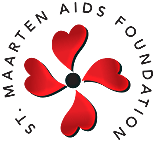testing: a priority in AIDS prevention
The Importance of testing for HIV & AIDS
The St. Maarten AIDS Foundation urges everyone to know his or her HIV status. Finding out your status is easier and faster than ever before. A simple HIV test, done through a small finger prick, is all it takes for you to be sure of where you stand. Results are available in 15 minutes and is performed confidentially.
Knowing your status means taking control of you health. Take advantage of the Free and Anonymous HIV testing offered by St. Maarten AIDS Foundation and by our sister organizations on the French side.
For our next Testing Day information, click here.
For information on testing on the French side, click here.
What is the HIV Test?
HIV testing determines whether or not you are infected with the Human Immunodeficiency Virus (HIV).
Why should I be tested for HIV?
If there is a possibility that you have been exposed to HIV, then a test is always the best option. You may have been exposed to the HIV virus if you have experienced one of the following:
- Unprotected sex
- Shared needles
- Rape
- Accidental needle stick at work
Click here for your personal risk-assessment.
If you think you might have been at risk of contracting this infection, it is better to do a HIV-antibody test, to determine your status. The advantages of early detection cannot be stressed enough and include:
(1) Being able to control the infection while your immune system is still strong, and you’re not ill yet.
(2) Early diagnosis and treatment reduces negative side effects from medications and improves long-term survival rates.
(3) Even if you find out about your HIV infection once you are already ill, it is possible to become healthy again and regain strength in your immune system once you receive treatment for your opportunistic infection and start on antiretroviral treatment. These are medicines that can control the virus from multiplying, and can give your (even weakened) immune system a chance to recuperate.
On St. Maarten, all medicines necessary for proper treatment of HIV infection are available, and covered by most (but not all) insurance plans. Apart from medication, you can start engaging in self help activities such as good nutrition and hygiene which may help keep infections at bay.
(4) Preventing virus transmission to others.
A person that has HIV infection has a responsibility towards his/her sexual partner(s) not to infect them. Knowing your status and that of your partner is therefore crucial and will reinforce the practice of safe sex to protect one another. Studies have shown that treatment and reduction of the amount of virus (viral load) reduces the chance of transmission by up to 96%.
(5) Preventing re-infection.
It is possible for an HIV-positive person to be re-infected. In the case of re-infection, not only will the disease progress faster, it puts you at risk of developing a so-called resistant virus, which does not respond to treatment. This would decrease your chances for effective treatment.
Therefore using a condom correctly and consistently is extremely important for everyone who has HIV infection and has sex. It protects your partner, but also yourself.
Testing often increases your commitment to overall good health habits. If you test negative, you may feel less anxious after knowing your HIV status, and be more committed to keep it that way.
The decision to take an HIV test is an extremely personal one. No one can make this decision for you. No one should insist that you do a test. However, knowing your status means that you can take necessary precautions in keeping yourself healthy and is strongly recommended.
How is HIV testing done?
HIV tests use a small blood-sample to determine if you have been infected with HIV. Certain tests on the market use saliva or urine to do the test, but a blood test could confirm both the presence of the virus and antibodies and therefore is the best body fluid to confirm HIV infection.
The tests used by the St. Maarten AIDS Foundation is a simple finger prick test that takes a very small amount of blood and results are known in less than 15 minutes. Tests are performed confidentially – you do not have to give your name.
If a general screening test with a blood sample returns positive, a second test (often called the Western Blot test) is done to confirm the results. When both tests return positive, it confirms that the antibody to HIV is present in your blood and therefore the presence of HIV infection.
If the test comes back negative, this means you do not have HIV infection or you are in the so-called Window Phase (3 weeks to 6 months) in which a test will not be able to detect the antibodies for HIV. It therefore makes sense to repeat the test in 6 months and use condoms to protect yourself from infection in the meantime. Your post-testing counselor should advise you whether you are in this window phase or not.
There is only one exception to this rule, and that is when babies are born to HIV-infected mothers. In this case, they always have some antibodies against HIV in their blood. Such babies therefore undergo a special test to determine the presence of the virus. After 18 months, the antibodies of the mother will have disappeared from the blood of the baby, if the baby had not become infected.



